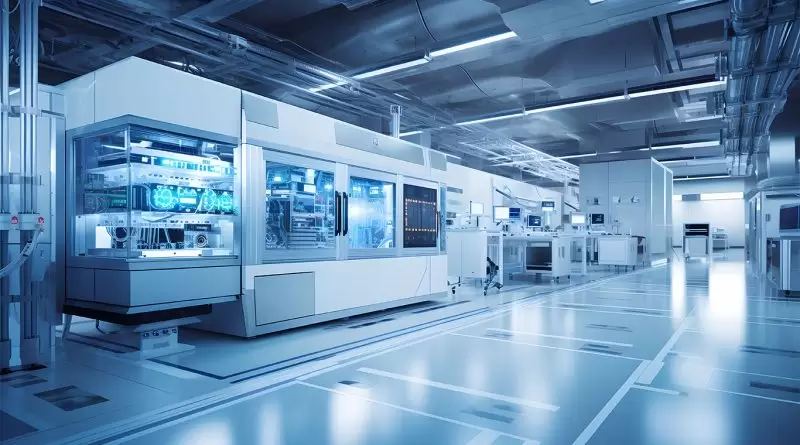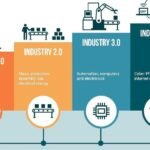Key Trends Shaping the Future of Manufacturing
- By -Lucille Farrow
- Posted on
- Posted in Manufacturing Technology
The manufacturing industry is undergoing a profound transformation driven by technological advancements, evolving consumer demands, and global economic shifts. Key trends are emerging that will shape the future of manufacturing, influencing everything from production processes to supply chain management. Here’s a look at some of the most significant trends shaping the future of manufacturing.
Automation and Robotics
Automation and robotics continue to revolutionize manufacturing by improving efficiency, precision, and safety:
- Increased Automation: Automated systems are streamlining repetitive tasks, reducing human error, and increasing production speeds. From assembly lines to quality control, automation is enhancing operational efficiency.
- Advanced Robotics: Robots equipped with artificial intelligence (AI) and machine learning capabilities are becoming more adaptable and versatile. They can perform complex tasks, collaborate with human workers, and operate in dynamic environments.
Industry 4.0 and Smart Manufacturing
Industry 4.0 represents the integration of digital technologies into manufacturing processes, creating smart factories that operate with greater intelligence and connectivity:
- Internet of Things (IoT): IoT devices enable real-time monitoring and control of manufacturing equipment, improving process efficiency and enabling predictive maintenance.
- Big Data and Analytics: The use of big data analytics helps manufacturers make data-driven decisions, optimize production processes, and enhance product quality by analyzing vast amounts of data collected from various sources.
Additive Manufacturing (3D Printing)
Additive manufacturing, or 3D printing, is transforming the way products are designed and produced:
- Rapid Prototyping: 3D printing allows for the quick creation of prototypes, enabling faster product development cycles and reducing time-to-market.
- Custom Manufacturing: The technology supports the production of customized and complex parts on demand, reducing the need for large inventories and enabling personalized products.
Sustainable and Green Manufacturing
Sustainability is becoming a central focus in manufacturing, with efforts to minimize environmental impact and promote eco-friendly practices:
- Energy Efficiency: Manufacturers are adopting energy-efficient technologies and processes to reduce energy consumption and lower carbon footprints.
- Recycling and Waste Reduction: Advances in recycling technologies and waste management practices are helping manufacturers minimize waste and promote circular economy principles.

Digital Twins and Simulation
Digital twins and simulation technologies are enhancing the design, testing, and optimization of manufacturing processes:
- Digital Twins: A digital twin is a virtual replica of a physical asset or process. Hence, by simulating real-world conditions, manufacturers can test and optimize processes, predict outcomes, and improve decision-making.
- Simulation Software: Simulation tools allow manufacturers to model and analyze production scenarios, identify potential issues, and refine processes before implementation.
Artificial Intelligence (AI) and Machine Learning
AI and machine learning are driving innovation in manufacturing by enabling smarter and more autonomous systems:
- Predictive Maintenance: AI algorithms analyze data from equipment sensors to predict potential failures and schedule maintenance before issues occur.
- Quality Control: Machine learning algorithms are used for defect detection and quality assurance, improving product consistency and reducing waste.
Supply Chain Resilience and Digitalization
The need for resilient and agile supply chains has become more apparent, driving digitalization and innovation in supply chain management:
- Supply Chain Visibility: Digital tools and IoT devices provide real-time visibility into supply chain operations, allowing for better management of inventory, logistics, and supplier relationships.
- Blockchain Technology: Blockchain is being used to enhance transparency and traceability in supply chains, improving trust and reducing the risk of fraud.
Workforce Development and Training
As manufacturing technologies evolve, so does the need for a skilled workforce:
- Upskilling and Reskilling: Manufacturers are investing in training programs to equip workers with the skills needed to operate new technologies and adapt to changing roles.
- Education and Collaboration: Partnerships between industry, academia, and training organizations are fostering the development of talent and addressing the skills gap in manufacturing.
Conclusion
In conclusion, the future of manufacturing is being shaped by a range of transformative trends. These including automation, smart technologies, and sustainable practices. Therefore, by embracing these trends, manufacturers can enhance efficiency, innovate processes, and remain competitive in a rapidly evolving industry. Staying informed and adaptable will be key to leveraging these advancements and driving success in the manufacturing sector.



